 Crazyhorse Fiction Editor Anthony Varallo’s Editor’s Note to the Spring 2019 issue couldn’t be more timely. In it, he recounts a conversation with a colleague asking, “What do you do with all your books?”
Crazyhorse Fiction Editor Anthony Varallo’s Editor’s Note to the Spring 2019 issue couldn’t be more timely. In it, he recounts a conversation with a colleague asking, “What do you do with all your books?”
A conundrum for most NewPages readers, no doubt, since being book people still means holding onto physical copies of books, no matter how many e-versions we could be reading also/instead.
I once envisioned the perfect adulthood as being one surrounded by books. I guess I also should have envisioned the time to read them all! Much like the Twilight Episode, Time Enough At Last, we here at NewPages find ourselves surrounded by books and literary journals with barely enough time to glance the covers and contents before another batch arrives in the mail.
We do make time, however, to read, to write reviews, to appreciate others’ reviews, and keep up with the literary world in general. Still – here are all these physical books.
Varallo [pictured] writes, “For many years, I acquired books with the idea that I was building a library. A library that would give me pleasure for years, I’d hoped, or a library that might be useful to others . . . “
We had also held such visions at one time, purchasing a dozen or so quality bookcases and having some built in. They quickly filled the office and spilled into numerous rooms in our home. And who read them? Did we have time? Did they even “look good” ? As Varallo comments, “I tell my colleague about the tower of books on my nightstand, the one that stretches higher than my lamp. I describe the books stacked horizontally on my bookshelves, not in the artful, decorative style you sometimes see in glossy magazines; these are stacks of pure necessity. Books piled on top of other books, sometimes bending the covers of the books beneath them.”
This is the reality of ‘too many books.’ Yes, there is such a thing as too many books. And the truth of the matter in our case is, they should be freed onto others so that they can be read.
We cleared off the bookshelves in the office. Cleared out almost every bookcase in the house. We boxed up books and magazines and donated them to various libraries, colleges, universities and K-12 classrooms in our area and a bit beyond (Hello Alaska friends!). After this initial clearing out, we are still met with a steady stream of books and lit mags that come through. It is our work, after all.
What to do with them? We have a plan hatching and look forward to sharing it with you later this summer. In the meantime, What do you do with all your books?
 Beautiful Things is a weekly column of “very brief nonfiction that find beauty in the everyday” published on the River Teeth: A Journal of Nonfiction Narrative website. Edited by Michelle Webster-Hein and Sarah M. Wells, the inspiration for the column was Michelle Webseter-Hein’s essay, “Beautiful Things,” published in River Teeth 15.1 and appearing in a series of excerpts on the website.
Beautiful Things is a weekly column of “very brief nonfiction that find beauty in the everyday” published on the River Teeth: A Journal of Nonfiction Narrative website. Edited by Michelle Webster-Hein and Sarah M. Wells, the inspiration for the column was Michelle Webseter-Hein’s essay, “Beautiful Things,” published in River Teeth 15.1 and appearing in a series of excerpts on the website.
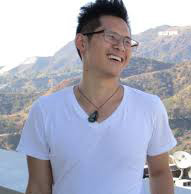 Maa, along with Lawrence-Minh Bùi Davis, founded the Asian American Literary Review in 2009 and has been serving as editor-in-chief. In his introduction to Georgia Review readers Maa writes, “A print periodical—dare I say here—is capable of cultivating communities in ways that no other medium can. To open up a journal—break a spine, perhaps—to carry a volume, or run your fingers over your name printed on a page is very special. But to congregate around a print journal is also special in its own right.”
Maa, along with Lawrence-Minh Bùi Davis, founded the Asian American Literary Review in 2009 and has been serving as editor-in-chief. In his introduction to Georgia Review readers Maa writes, “A print periodical—dare I say here—is capable of cultivating communities in ways that no other medium can. To open up a journal—break a spine, perhaps—to carry a volume, or run your fingers over your name printed on a page is very special. But to congregate around a print journal is also special in its own right.”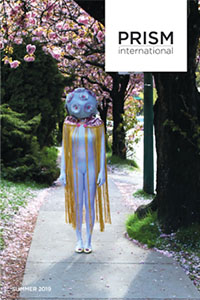

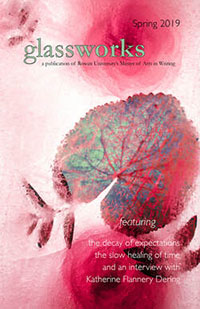
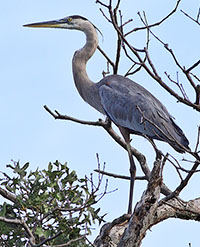 Between October 2016 and February 2017, Heron Tree online poetry journal published a series of works “constructed from materials in the public domain in the United States.” Editors Chris Campolo and Rebecca Resinski then compiled these into a PDF ebook, Found in the Public Domain, that is free to download.
Between October 2016 and February 2017, Heron Tree online poetry journal published a series of works “constructed from materials in the public domain in the United States.” Editors Chris Campolo and Rebecca Resinski then compiled these into a PDF ebook, Found in the Public Domain, that is free to download.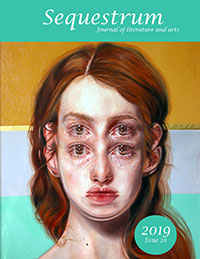
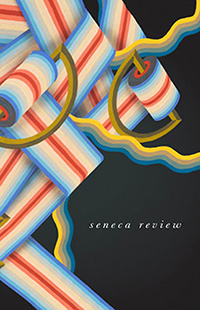
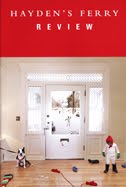
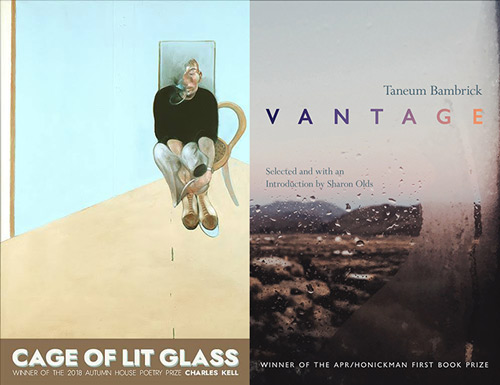 Take some time to check out award-winning books published this September.
Take some time to check out award-winning books published this September.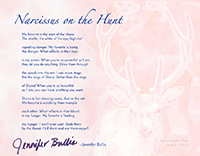 In addition to publishing poetry, interviews, and reviews twice a year online as well as chapbooks, Under a Warm Green Linden accompanies each issue with a selection of beautiful, affordable, high-quality print broadsides signed by the authors. The adjectives to describe these broadsides are my own; I have sought them out for purchase with every new issue – so I can attest to their production value! Add to that, Under a Warm Green Linden donates a portion of all proceeds from sales to the Arbor Day Foundation and the National Forest Foundation – both with specific reforestation efforts. To date. Under a Warm Green Linden supporters have helped plant 300 trees. A win all around!
In addition to publishing poetry, interviews, and reviews twice a year online as well as chapbooks, Under a Warm Green Linden accompanies each issue with a selection of beautiful, affordable, high-quality print broadsides signed by the authors. The adjectives to describe these broadsides are my own; I have sought them out for purchase with every new issue – so I can attest to their production value! Add to that, Under a Warm Green Linden donates a portion of all proceeds from sales to the Arbor Day Foundation and the National Forest Foundation – both with specific reforestation efforts. To date. Under a Warm Green Linden supporters have helped plant 300 trees. A win all around!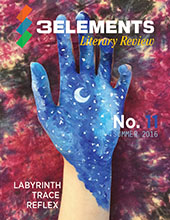 Each quarter, 3Elements Review presents three elements, and all three must be used in the story or poem in order to be considered for publication.
Each quarter, 3Elements Review presents three elements, and all three must be used in the story or poem in order to be considered for publication.  The Fall 2019 issue of Rattle Tribute to African Poets features seventeen poems “representative of the urgency and excitement that makes the poetry coming out of the continent feel so vital.”
The Fall 2019 issue of Rattle Tribute to African Poets features seventeen poems “representative of the urgency and excitement that makes the poetry coming out of the continent feel so vital.”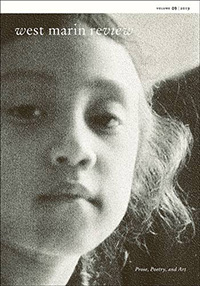
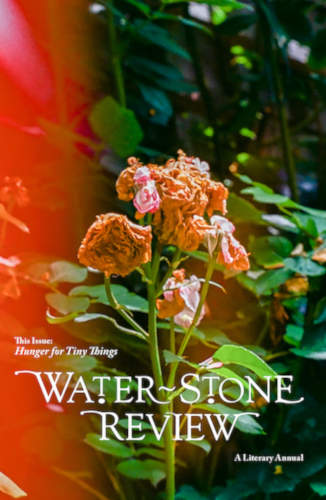

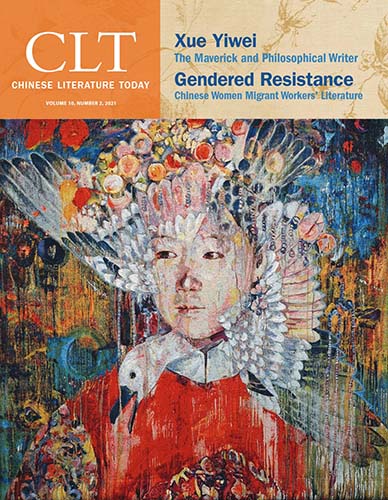 Contemporary Chinese Poetry is the special focus of the latest issue of Chinese Literature Today (v8 n1), with several works by each poet. The featured authors and the translators include:
Contemporary Chinese Poetry is the special focus of the latest issue of Chinese Literature Today (v8 n1), with several works by each poet. The featured authors and the translators include: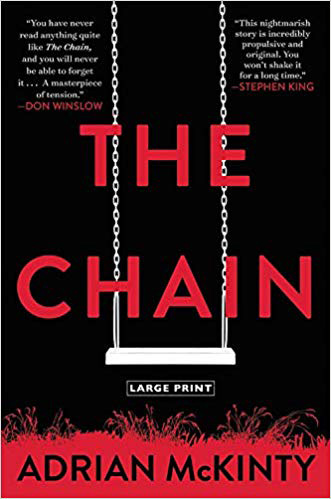 You are now part of The Chain.
You are now part of The Chain.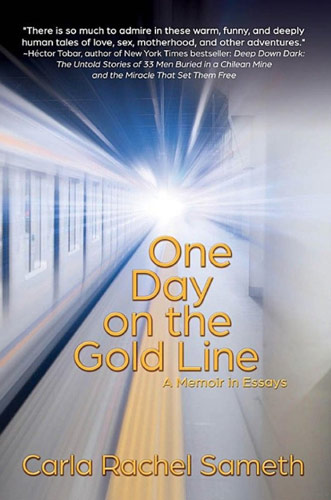 Carla Rachel Sameth’s One Day on the Gold Line offers a gut-wrenching account of Sameth’s life from young adulthood through middle-age, spinning around maternal desire and loss, and probing the critical distinctions between an imaginary motherhood and the lived reality of mothering her son through young-adulthood. Structured through a series of twenty-nine short chapters that refuse easy chronology, the book is both thematically and formally interested in questions of time and identity.
Carla Rachel Sameth’s One Day on the Gold Line offers a gut-wrenching account of Sameth’s life from young adulthood through middle-age, spinning around maternal desire and loss, and probing the critical distinctions between an imaginary motherhood and the lived reality of mothering her son through young-adulthood. Structured through a series of twenty-nine short chapters that refuse easy chronology, the book is both thematically and formally interested in questions of time and identity.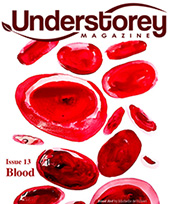 Understorey Magazine is an online publication of Canadian literature and visual art inviting “compelling, original stories and art by Canadian writers and artists who identify as women or non-binary.”
Understorey Magazine is an online publication of Canadian literature and visual art inviting “compelling, original stories and art by Canadian writers and artists who identify as women or non-binary.” First Prize
First Prize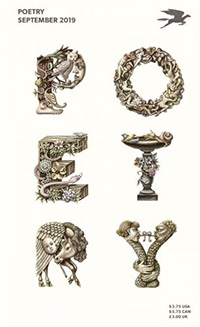
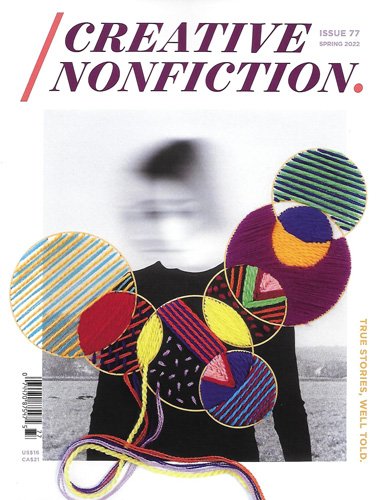
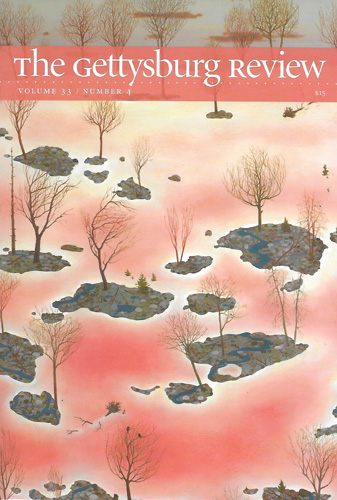
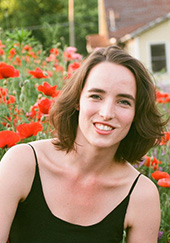 Poetry Winner
Poetry Winner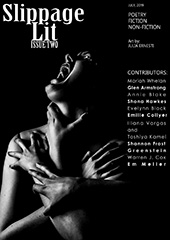 I have a friend who likes to order items on a menu that are sound fun to say when we go out to eat. That’s how I first came to try calamari and bibimbap. It’s also a way to discover great new lit mags, like Slippage Lit, whose co-editors, Jacob Parsons and Admir Šiljak, along with Social Media Editor Semina Pekmezović, admit they chose the name because they just like the way it sounds. But that’s not the only reason.
I have a friend who likes to order items on a menu that are sound fun to say when we go out to eat. That’s how I first came to try calamari and bibimbap. It’s also a way to discover great new lit mags, like Slippage Lit, whose co-editors, Jacob Parsons and Admir Šiljak, along with Social Media Editor Semina Pekmezović, admit they chose the name because they just like the way it sounds. But that’s not the only reason.  Cleaver: Philadelphia’s International Literary Magazine online features Writer-to-Writer: Essays on Craft and The Writing Life.
Cleaver: Philadelphia’s International Literary Magazine online features Writer-to-Writer: Essays on Craft and The Writing Life. Hinsey discusses her approach to this collection, coming to the difficult question of “how to choose among so many brilliant authors? Should one pick a range of poets, or focus on individual key texts that might reflect a Polish reader’s idea of major ‘missing’ poems?”
Hinsey discusses her approach to this collection, coming to the difficult question of “how to choose among so many brilliant authors? Should one pick a range of poets, or focus on individual key texts that might reflect a Polish reader’s idea of major ‘missing’ poems?”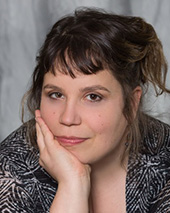 Dogwood Literary Award in Fiction
Dogwood Literary Award in Fiction If you love rules and regulations, following forms and formulas to make something work, gnashing your teeth and pulling out your hair to meet perfection – and you love poetry – then you’re going to love this free Prime 53 Summer Challenge Poetry Contest.
If you love rules and regulations, following forms and formulas to make something work, gnashing your teeth and pulling out your hair to meet perfection – and you love poetry – then you’re going to love this free Prime 53 Summer Challenge Poetry Contest. 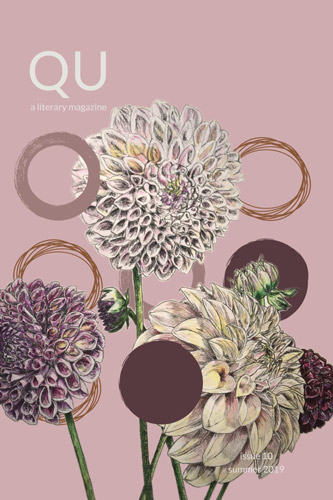 Wrap up your summer and get ready to head back to school with Zac Thompson’s “The Water of Life” a stage/screenplay in Qu #10. The characters, Leah and Carrie, are young, romantic partners at the close of their two-month summer relationship, each preparing to go to college—Carrie away to university and Leah to the local junior college. Leah, a preacher’s daughter, has set up a baptistery so the two can bind their relationship with a ritual. The dialogue is subtly quick and revealing, Leah being the pragmatist and Carrie the comic; Leah the “intense” dramatist and Carrie the lighthearted, “afraid to express [her] feelings.” It’s an intimate scene, full of the love and subsequent gut-churning realism young people face when their paths are on the verge of separation. A memorably bittersweet read.
Wrap up your summer and get ready to head back to school with Zac Thompson’s “The Water of Life” a stage/screenplay in Qu #10. The characters, Leah and Carrie, are young, romantic partners at the close of their two-month summer relationship, each preparing to go to college—Carrie away to university and Leah to the local junior college. Leah, a preacher’s daughter, has set up a baptistery so the two can bind their relationship with a ritual. The dialogue is subtly quick and revealing, Leah being the pragmatist and Carrie the comic; Leah the “intense” dramatist and Carrie the lighthearted, “afraid to express [her] feelings.” It’s an intimate scene, full of the love and subsequent gut-churning realism young people face when their paths are on the verge of separation. A memorably bittersweet read.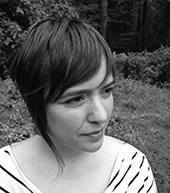 Drawing inspiration from Eric Magrane’s “Various Instructions for the Practice of Poetic Field Research,” Bell writes that “these instructions are an invitation to think deeply in and with place. They have proved enduring; I’ve been glad to use them in teaching and in my own poetic practice.”
Drawing inspiration from Eric Magrane’s “Various Instructions for the Practice of Poetic Field Research,” Bell writes that “these instructions are an invitation to think deeply in and with place. They have proved enduring; I’ve been glad to use them in teaching and in my own poetic practice.”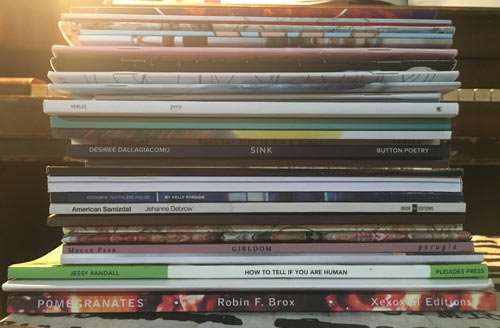 We’re two weeks and a day into
We’re two weeks and a day into 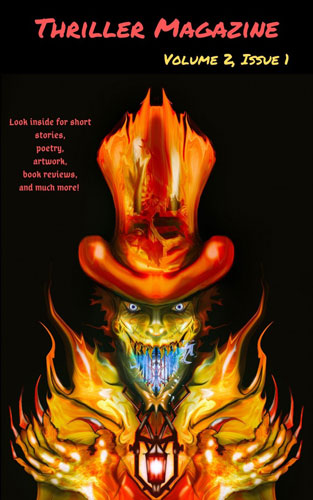 Robb T. White’s lead story “A Civilized Man” is provided as a sample of the July 2019 Thriller Magazine (2.1). White’s narrator opens the story with, “What is a civilized man?” and walks readers through his fiancé’s disappearance and ultimate discovery of her brutalized dead body. The predictable dead-end investigation is offset by the narrator’s unexpected choice of action as he lays down his own justice. “It’s odd that I feel no guilt or shame.” The narrator confesses, “Quite the opposite. I feel . . . pleased, if that’s the right word.” Likewise, in reading the objectively detailed sequence of events, I felt no guilt or shame in his actions either. Pleased ? Maybe that is the right word.
Robb T. White’s lead story “A Civilized Man” is provided as a sample of the July 2019 Thriller Magazine (2.1). White’s narrator opens the story with, “What is a civilized man?” and walks readers through his fiancé’s disappearance and ultimate discovery of her brutalized dead body. The predictable dead-end investigation is offset by the narrator’s unexpected choice of action as he lays down his own justice. “It’s odd that I feel no guilt or shame.” The narrator confesses, “Quite the opposite. I feel . . . pleased, if that’s the right word.” Likewise, in reading the objectively detailed sequence of events, I felt no guilt or shame in his actions either. Pleased ? Maybe that is the right word. First Place
First Place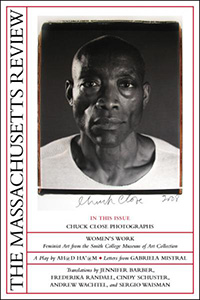
 Two whirlwind prose poems by Leslie Marie Aguilar in the May 2019 issue of wildness online speak in abstractions melded with concrete symbols, creating a contemporary mythology of the self. “Bone Altar” begins, “Legends begin with valerian root, red clover, & a touch of tequila.” and instructs the reader to call upon ancestors. “Cartography,” just at the moment I think the poem’s speaker is deeply troubled, assures me, “If this sounds like a cry for help, like shouting into a canyon & hoping to hear a voice different than your own, it’s not.” Two dizzyingly brief works with lasting impact.
Two whirlwind prose poems by Leslie Marie Aguilar in the May 2019 issue of wildness online speak in abstractions melded with concrete symbols, creating a contemporary mythology of the self. “Bone Altar” begins, “Legends begin with valerian root, red clover, & a touch of tequila.” and instructs the reader to call upon ancestors. “Cartography,” just at the moment I think the poem’s speaker is deeply troubled, assures me, “If this sounds like a cry for help, like shouting into a canyon & hoping to hear a voice different than your own, it’s not.” Two dizzyingly brief works with lasting impact. In his “Front Matter” editor’s note to the July/August 2019 issue of Kenyon Review, David H. Lynn announces his intention to step down from his role as The David F. Banks Editor of the publication:
In his “Front Matter” editor’s note to the July/August 2019 issue of Kenyon Review, David H. Lynn announces his intention to step down from his role as The David F. Banks Editor of the publication: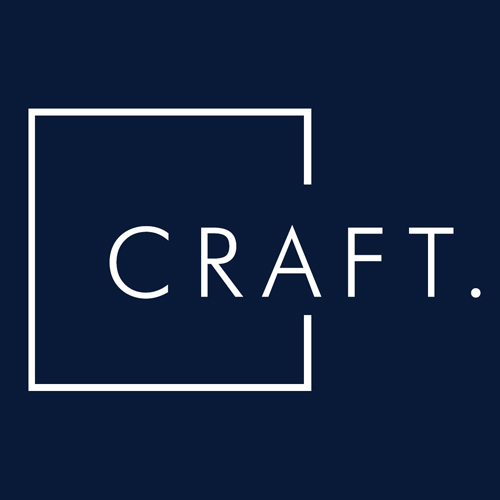 CRAFT Literary’s mission is to “explore the art of fiction with a focus on the elements of craft.” They do this through publishing fiction with commentary, pieces on craft, interviews, and more.
CRAFT Literary’s mission is to “explore the art of fiction with a focus on the elements of craft.” They do this through publishing fiction with commentary, pieces on craft, interviews, and more. Jillian Weise’s bio at the back of her latest collection, Cyborg Detective, boasts an impressive professional history, from books published to awards won to disability rights activism to starring in the tongue-in-cheek web series “Tips for Writers by Tipsy Tullivan.” In Cyborg Detective, Weise continues to show off her skills while holding the mirror up to the literary community.
Jillian Weise’s bio at the back of her latest collection, Cyborg Detective, boasts an impressive professional history, from books published to awards won to disability rights activism to starring in the tongue-in-cheek web series “Tips for Writers by Tipsy Tullivan.” In Cyborg Detective, Weise continues to show off her skills while holding the mirror up to the literary community.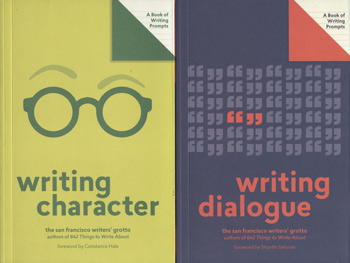 Abrams Noterie, imprint of ABRAMS Books, publishes stationary, artbooks, journals, and activity books, with a four-part collection on writing to be released this September.
Abrams Noterie, imprint of ABRAMS Books, publishes stationary, artbooks, journals, and activity books, with a four-part collection on writing to be released this September. First Place
First Place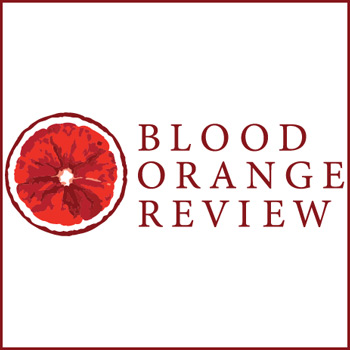 The latest issue of Blood Orange Review offers plenty of good writing, the nonfiction inviting readers to consider where they come from as the three writers do the same.
The latest issue of Blood Orange Review offers plenty of good writing, the nonfiction inviting readers to consider where they come from as the three writers do the same.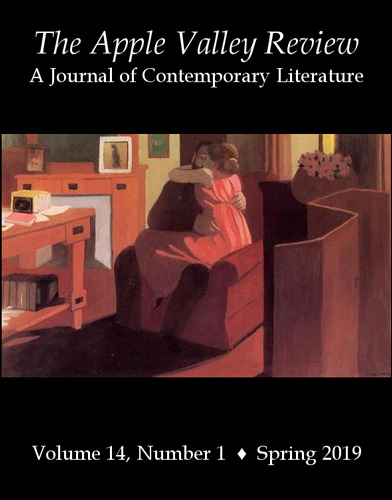 Our families and the people we care about affect much of how we feel or what we do in life, so it’s appropriate that many of the poems in the Spring 2019 issue of Apple Valley Review center on family.
Our families and the people we care about affect much of how we feel or what we do in life, so it’s appropriate that many of the poems in the Spring 2019 issue of Apple Valley Review center on family. One-Legged Pigeon
One-Legged Pigeon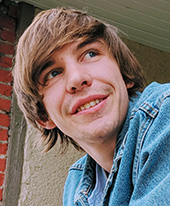 The Summer 2019 issue of The Malahat Review features winners of their biannual Long Poem Prize for 2019 judged by Jordan Abel, Sonnet L’Abbé and Gillian Sze:
The Summer 2019 issue of The Malahat Review features winners of their biannual Long Poem Prize for 2019 judged by Jordan Abel, Sonnet L’Abbé and Gillian Sze: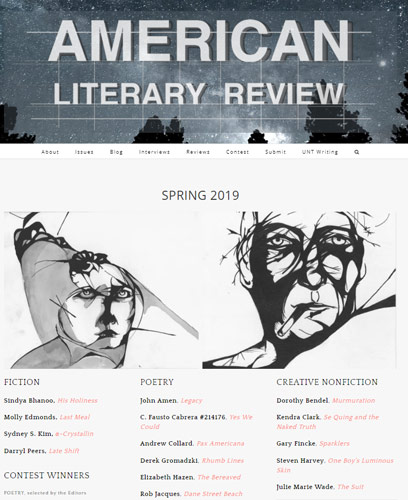 In the latest issue, American Literary Review brings readers the winners of the annual ALR Awards. The 2019 winners feature Ellen Seusy in poetry, Cady Vishniac in fiction, and Julialicia Case in nonfiction.
In the latest issue, American Literary Review brings readers the winners of the annual ALR Awards. The 2019 winners feature Ellen Seusy in poetry, Cady Vishniac in fiction, and Julialicia Case in nonfiction.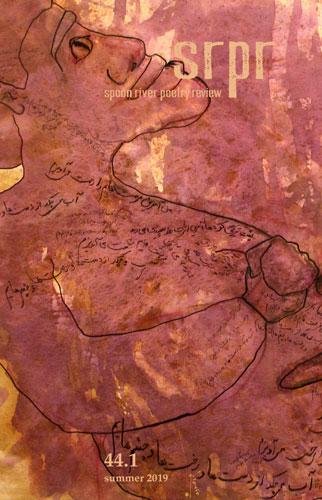 A recent series of poems by Jeannine Hall Gailey in the Spoon River Poetry Review is a testament to the tenacity of poetry and its poet. In her first chapbook, Female Comic Book Superheroes (Pudding House Publishing, 2005), I met Gailey as a stealthy kick-ass feminist poet. Her works were subtle but fierce, drawing character, voice, and reader into a collective sense of powerful control. Her following five books continued on this vein through recurring themes of mythology, fairy tale, feminism, science, science fiction, and the apocalypse. Through the years, I also kept up with her blog, where she shared her diagnosis of MS. But, as she first noted, back in 2013, “. . . I don’t want to define myself by this or any of the other weirdo health stuff I have. I am maybe a mutant, but I have a lot of good things in my life too.”
A recent series of poems by Jeannine Hall Gailey in the Spoon River Poetry Review is a testament to the tenacity of poetry and its poet. In her first chapbook, Female Comic Book Superheroes (Pudding House Publishing, 2005), I met Gailey as a stealthy kick-ass feminist poet. Her works were subtle but fierce, drawing character, voice, and reader into a collective sense of powerful control. Her following five books continued on this vein through recurring themes of mythology, fairy tale, feminism, science, science fiction, and the apocalypse. Through the years, I also kept up with her blog, where she shared her diagnosis of MS. But, as she first noted, back in 2013, “. . . I don’t want to define myself by this or any of the other weirdo health stuff I have. I am maybe a mutant, but I have a lot of good things in my life too.”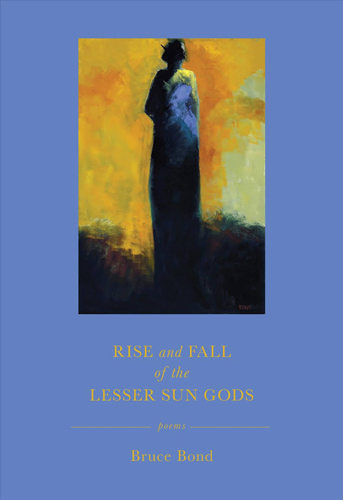 Perhaps it is because this was written in January, and in my part of the world, the temperature was hovering around 0 degrees. Maybe it is the hours I had spent hibernating and devouring hours of classic movies from the 1940s and 50s aired on TCM. Or maybe it’s simply the idea of a ‘radio in the sand’ emitting static and faint music from another place in the universe—Hollywood.
Perhaps it is because this was written in January, and in my part of the world, the temperature was hovering around 0 degrees. Maybe it is the hours I had spent hibernating and devouring hours of classic movies from the 1940s and 50s aired on TCM. Or maybe it’s simply the idea of a ‘radio in the sand’ emitting static and faint music from another place in the universe—Hollywood.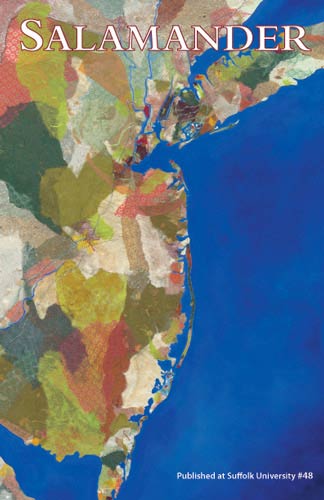 After twenty-seven years, Jennifer Barber has left her position as Editor-in-Chief of Salamander. In the Summer 2019 issue, readers can find a portfolio, edited by Fred Marchant, dedicated to Barber’s work with Salamander over the years.
After twenty-seven years, Jennifer Barber has left her position as Editor-in-Chief of Salamander. In the Summer 2019 issue, readers can find a portfolio, edited by Fred Marchant, dedicated to Barber’s work with Salamander over the years.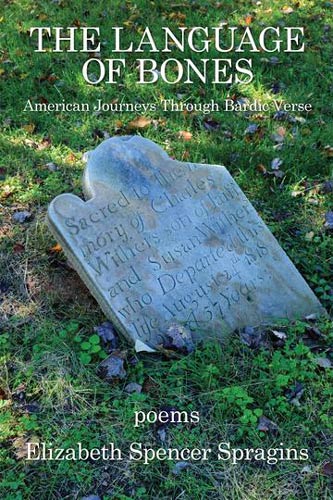 Elizabeth Spencer Spragins’ passion for bardic verse in The Language of the Bones is irresistible. I can’t imagine a writer who, after reading this, wouldn’t try her hand at it or even use this as a class text to inspire students. Though Spragins does not provide ‘guidelines’ for the forms she utilizes – four Welsh (cywydd llosgyrnog, rhupunt, clogyrnach, cyhydedd hir) and one Gaelic (rannaigheacht ghairid) – a Google search offers plenty of resources (including an article by Spragins herself).
Elizabeth Spencer Spragins’ passion for bardic verse in The Language of the Bones is irresistible. I can’t imagine a writer who, after reading this, wouldn’t try her hand at it or even use this as a class text to inspire students. Though Spragins does not provide ‘guidelines’ for the forms she utilizes – four Welsh (cywydd llosgyrnog, rhupunt, clogyrnach, cyhydedd hir) and one Gaelic (rannaigheacht ghairid) – a Google search offers plenty of resources (including an article by Spragins herself). Cutting, strange, and daring are the words The Shore uses to describe the kind of poetry they seek to publish for its readership. Like the waters of lakes or seas or even rivers, the editors detail, “We want poems that push and ache and recede.” And like any beautiful and powerful shoreline, how could readers and writers not be drawn in?
Cutting, strange, and daring are the words The Shore uses to describe the kind of poetry they seek to publish for its readership. Like the waters of lakes or seas or even rivers, the editors detail, “We want poems that push and ache and recede.” And like any beautiful and powerful shoreline, how could readers and writers not be drawn in?  Crazyhorse Fiction Editor Anthony Varallo’s Editor’s Note to the Spring 2019 issue couldn’t be more timely. In it, he recounts a conversation with a colleague asking, “What do you do with all your books?”
Crazyhorse Fiction Editor Anthony Varallo’s Editor’s Note to the Spring 2019 issue couldn’t be more timely. In it, he recounts a conversation with a colleague asking, “What do you do with all your books?”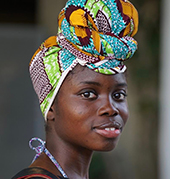 1st place goes to Rachael Uwada [pictured] Clifford of Baltimore, Maryland, who wins $2500 for “What the Year Will Swallow.” Her story will be published in Issue 106, the final issue of Glimmer Train Stories. This will be her first fiction publication.
1st place goes to Rachael Uwada [pictured] Clifford of Baltimore, Maryland, who wins $2500 for “What the Year Will Swallow.” Her story will be published in Issue 106, the final issue of Glimmer Train Stories. This will be her first fiction publication.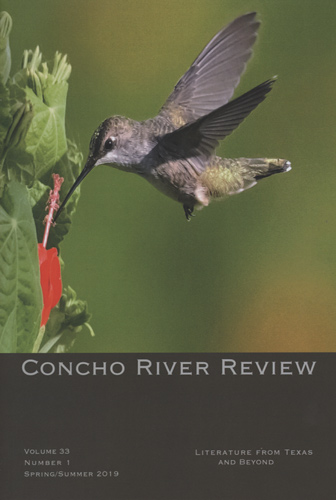 It doesn’t matter if you gravitate toward fiction, nonfiction, or poetry when cracking open a new issue of literary magazine—the Spring/Summer 2019 Concho River Review has you covered.
It doesn’t matter if you gravitate toward fiction, nonfiction, or poetry when cracking open a new issue of literary magazine—the Spring/Summer 2019 Concho River Review has you covered.